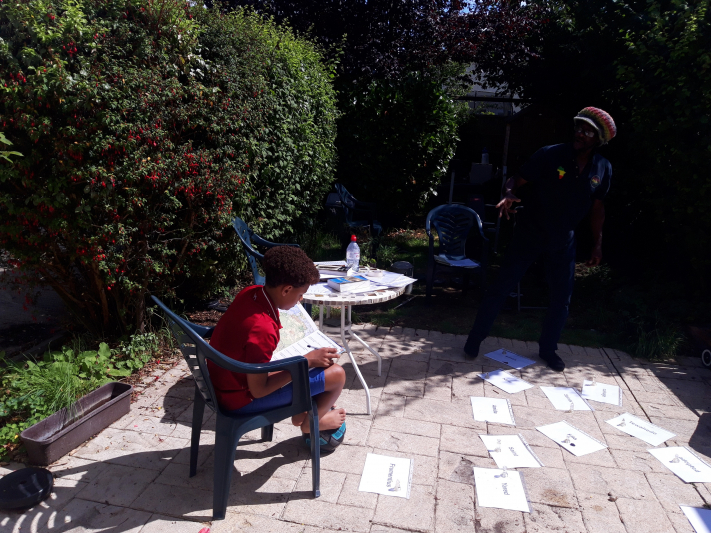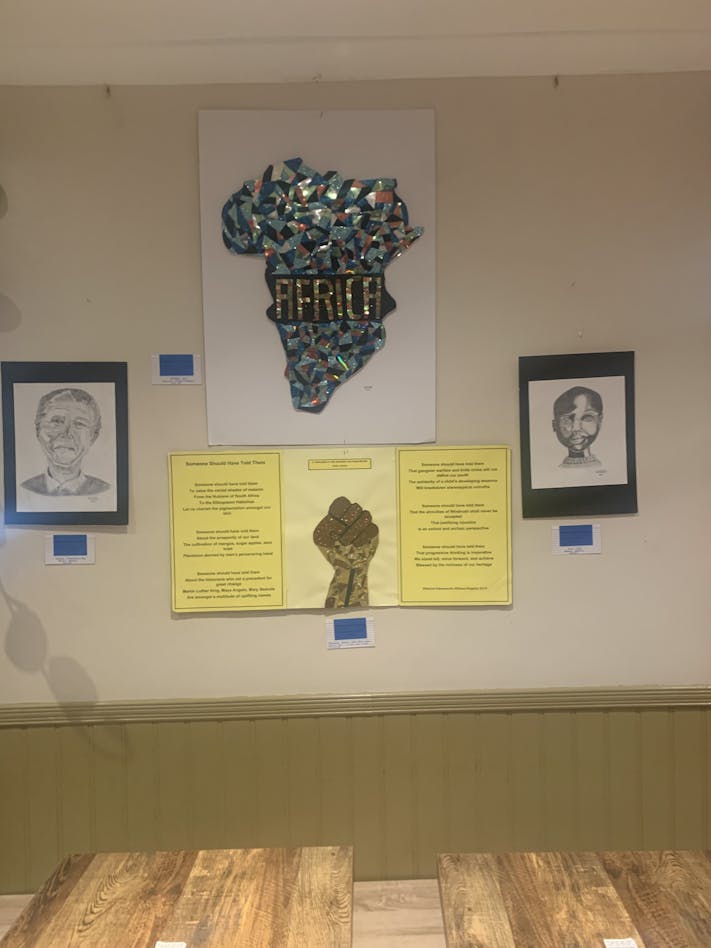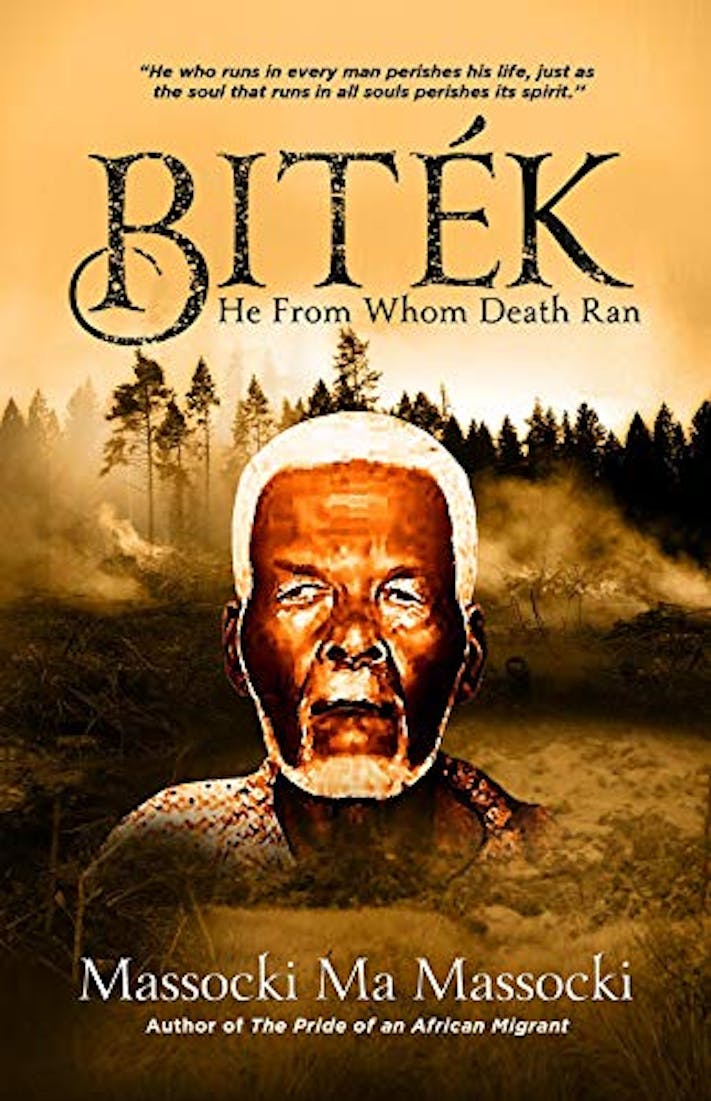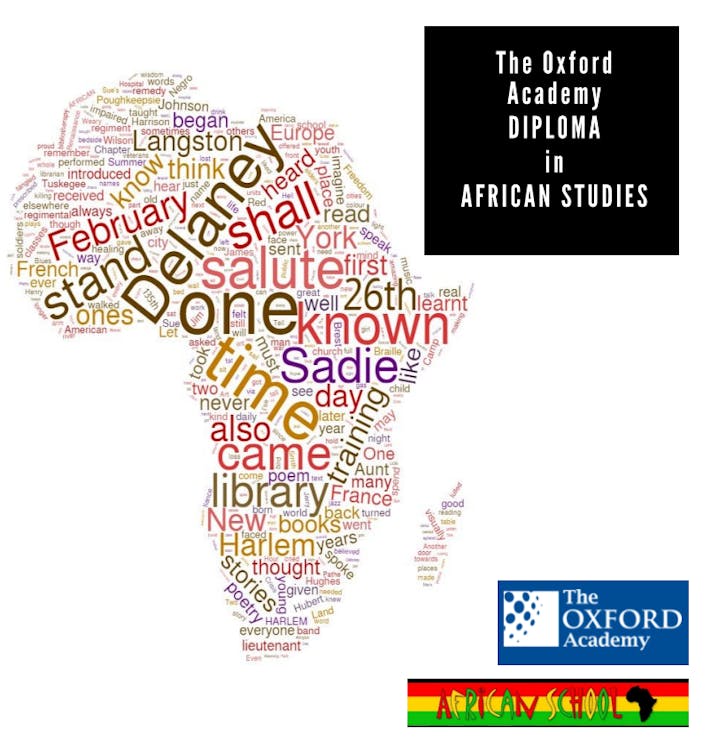If l should ask you dear reader, what is your favourite day of the weekend, Saturday or Sunday, which would you say? For me, l would say Sunday. Because on that day, in his dad's back garden, l deliver African Studies to my youngest student, the eleven year old Jamarley Tatenda Young.
At a time when all my teaching is online, it's good to return to before-Covid interaction. And what better place to teach - apart from by a river - than in a green classroom with a blue ceiling?
Using large named cards on the patio floor, we mapped out the countries bordering the Indian Ocean, so we could look at the medieval trade between the East African city states and the countries in Asia: as far as Indonesia and China. We spoke of the monsoon winds that empowered the trade and the coming of the lateen sail.
Cloves from lndonesia,
Frankincense from Somalia.
Gold from Zimbabwe,
Through the port of Sofala.
The mention of Zimbabwe, in that pre-colonial trade network, resonated personally, as his mother is from there. His grand uncle, Moses Bikshoni - an artist and teacher of mbira, the national instrument of Zimbabwe - comes from a long line of manyusas; rain ambassadors, entrusted with carrying the prayers of the village to the shrine in the Matonjeni Hills, to ask for rain, so there will be corn and sadza for all. I think Jamarley, as time went on, would have fulfilled such a role.
After the interactive cartography (study of maps), taking the interaction momentarily into modern times, using a connections exercise, he linked up each country with its capital city. Apart from asking where Oman is and the capital of Mozambique, the young student sailed through; like an ancient dhow on a sunny day, going from Zanzibar, Tanzania, to Kandla Port, India.
Using a wordsearch, he identified ten of the East African city states; which stretched from Somalia in the north-east, to Mozambique in the south. The ten words were taped to the fence and to the window pains; names such as Mogadishu, Lamu, Zanzibar and Mombasa.
We spoke of Kiswahili and the languages that had input into that East African language of regional importance, such as Pokomo from Kenya, Arabic, Persian and Portuguese. We then concluded with a quiz, as recap and further source of information.
I'm impressed with his sense of focus and capacity for retention, as evidenced by the quiz. When you think of the range of interests that he has - captain of his football team, learning mbira and student of African Studies - he reminds me of the great Paul Robeson, who was a college football star, acclaimed singer and linguist of African languages.
It’s a pleasure to rise on Sunday mornings, to cycle from Blackbird Leys to Headington for 11am, to sit in the green classroom with the blue ceiling: talking of Africa, with Jamarley Tatenda Young.








